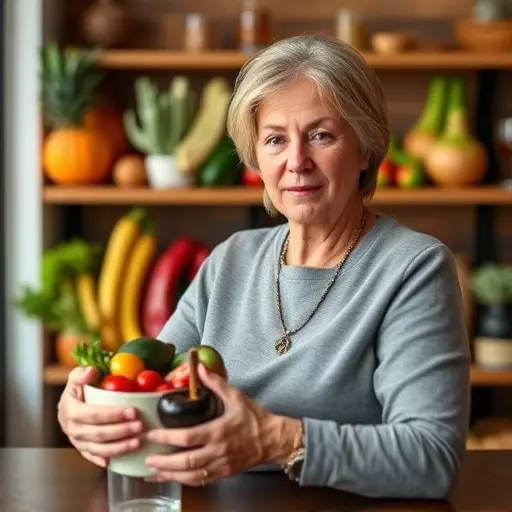Functional medicine in Gary-Lake Station is revolutionizing cancer care by combining natural solutions with conventional treatments. It focuses on tailored dietary approaches and functional nutrition strategies during chemotherapy to bolster immune function and address underlying imbalances. This holistic approach enhances treatment effectiveness, reduces side effects, and improves post-cancer recovery rates. By optimizing nutrient intake and personalized care, functional medicine plays a crucial role in improving quality of life for cancer survivors.
Chronic infections complicating cancer care pose significant challenges, impacting treatment outcomes and patient quality of life. This article explores innovative approaches using functional protocols to address this pressing issue. We delve into the understanding of chronic infections in cancer care, highlighting their multifaceted challenges and impact. Additionally, we present case studies showcasing successful implementations of functional medicine in Gary-Lake Station, focusing on holistic strategies and functional nutrition support for chemotherapy patients. The role of functional medicine in enhancing post-cancer recovery is also explored.
- Understanding Chronic Infections in Cancer Care: Challenges and Impact
- Integrating Functional Medicine in Gary-Lake Station: A Holistic Approach
- Functional Nutrition Strategies to Support Chemotherapy Patients
- Enhancing Post-Cancer Recovery with Functional Medicine Interventions
- Case Studies: Success Stories of Functional Protocols in Cancer Care
Understanding Chronic Infections in Cancer Care: Challenges and Impact

Chronic infections pose significant challenges in cancer care. Many individuals undergoing chemotherapy or other cancer treatments experience prolonged periods of weakened immune function, making them susceptible to various infections. These infections can range from common respiratory issues to more severe, life-threatening conditions. The impact is twofold: first, chronic infections can slow down the effectiveness of cancer treatment, and second, they may lead to significant post-cancer health complications. This underlines the critical need for proactive management.
In the context of functional medicine in Gary-Lake Station, functional nutrition strategies play a pivotal role during chemotherapy. Customized dietary approaches aimed at bolstering immune function can help mitigate infection risks. Furthermore, the role of functional medicine extends into post-cancer recovery, where it contributes to holistic healing and improved quality of life for cancer survivors by addressing underlying imbalances that may have contributed to chronic infections in the first place.
Integrating Functional Medicine in Gary-Lake Station: A Holistic Approach

In Gary-Lake Station, integrating Functional Medicine is transforming cancer care with a holistic approach that combines conventional treatments with natural solutions. This innovative strategy leverages functional nutrition strategies during chemotherapy to support patients’ overall well-being and enhance their immune systems. By focusing on the underlying causes of chronic infections, healthcare providers can optimize treatment outcomes and improve post-cancer recovery rates.
Functional Medicine plays a pivotal role in addressing the complex nutritional needs of cancer survivors. It offers personalized treatments that go beyond symptom management, targeting the root imbalances that can lead to persistent infections. Through functional nutrition assessments and tailored interventions, patients gain tools to empower their bodies during and after chemotherapy, fostering a more robust and resilient state.
Functional Nutrition Strategies to Support Chemotherapy Patients

In the context of cancer care, functional medicine in Gary-Lake Station offers valuable solutions for addressing chronic infections that often accompany chemotherapy. Functional nutrition strategies play a pivotal role in supporting patients undergoing this intense treatment. By focusing on whole-body health and tailored nutrient interventions, these strategies aim to enhance immune function, reduce adverse effects, and promote post-cancer recovery.
Nutritionists specializing in functional medicine can develop personalized plans that consider each patient’s unique needs. This may include optimizing nutrient intake, using dietary supplements, and incorporating anti-inflammatory foods to mitigate the impact of chemotherapy. The goal is not just to support survival but also to foster resilience and improve quality of life during and after cancer treatment, emphasizing the role of functional medicine in post-cancer recovery.
Enhancing Post-Cancer Recovery with Functional Medicine Interventions

In the context of cancer care, enhancing post-cancer recovery is a multifaceted approach that includes various functional medicine interventions in Gary-Lake Station. Functional medicine emphasizes holistic healing by addressing not just the physical symptoms but also the underlying causes and imbalances within the body. For patients undergoing chemotherapy, functional nutrition strategies play a pivotal role in supporting their journey. This involves tailored dietary plans to optimize nutrient intake, boost immunity, and mitigate side effects commonly associated with cancer treatment.
The role of functional medicine in post-cancer recovery is profound, offering personalized care that considers each patient’s unique needs. By integrating these strategies, patients can experience improved overall well-being, better management of treatment-related symptoms, and a stronger foundation for rebuilding their health post-cancer. This approach not only accelerates the recovery process but also empowers individuals to take an active role in their healing journey.
Case Studies: Success Stories of Functional Protocols in Cancer Care

In the context of cancer care, functional protocols have emerged as powerful tools, offering innovative approaches to managing chronic infections and enhancing patient outcomes. Case studies from Gary-Lake Station communities highlight successful implementations of functional medicine, where personalized nutrition strategies play a pivotal role during chemotherapy. By integrating functional nutrition into standard care, patients experience improved immune function, leading to better infection control and overall survival rates.
These success stories underscore the growing recognition of functional medicine’s potential in post-cancer recovery. Functional protocols focus on addressing the root causes of infections rather than merely treating symptoms, fostering a holistic healing environment. Through tailored dietary interventions and natural therapies, patients can regain energy, reduce side effects from treatments, and enhance their overall quality of life during and after cancer journeys.
